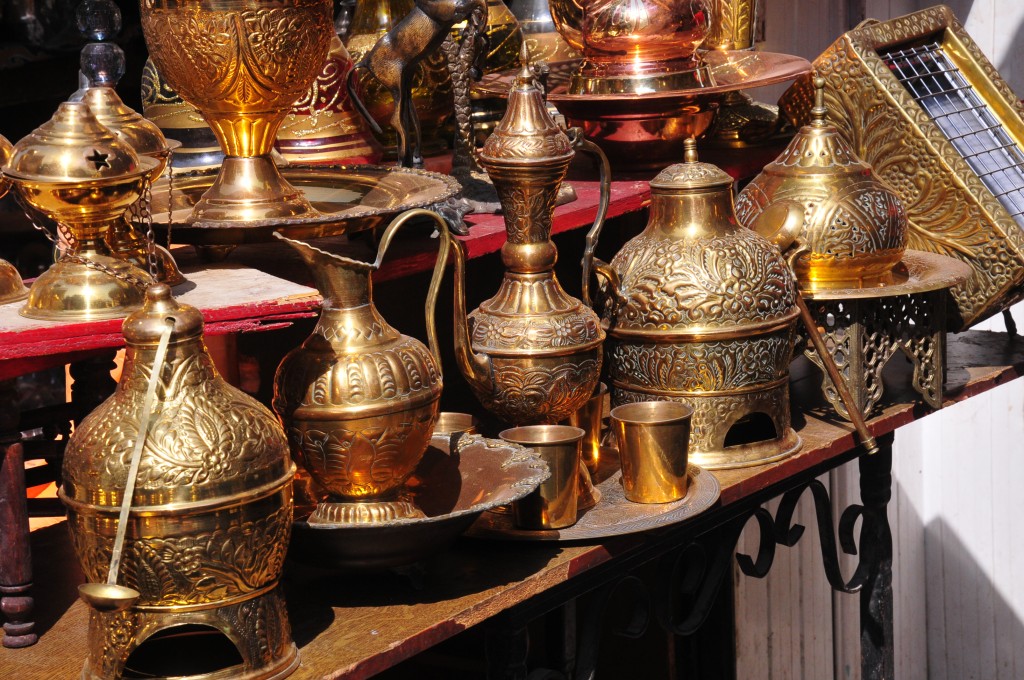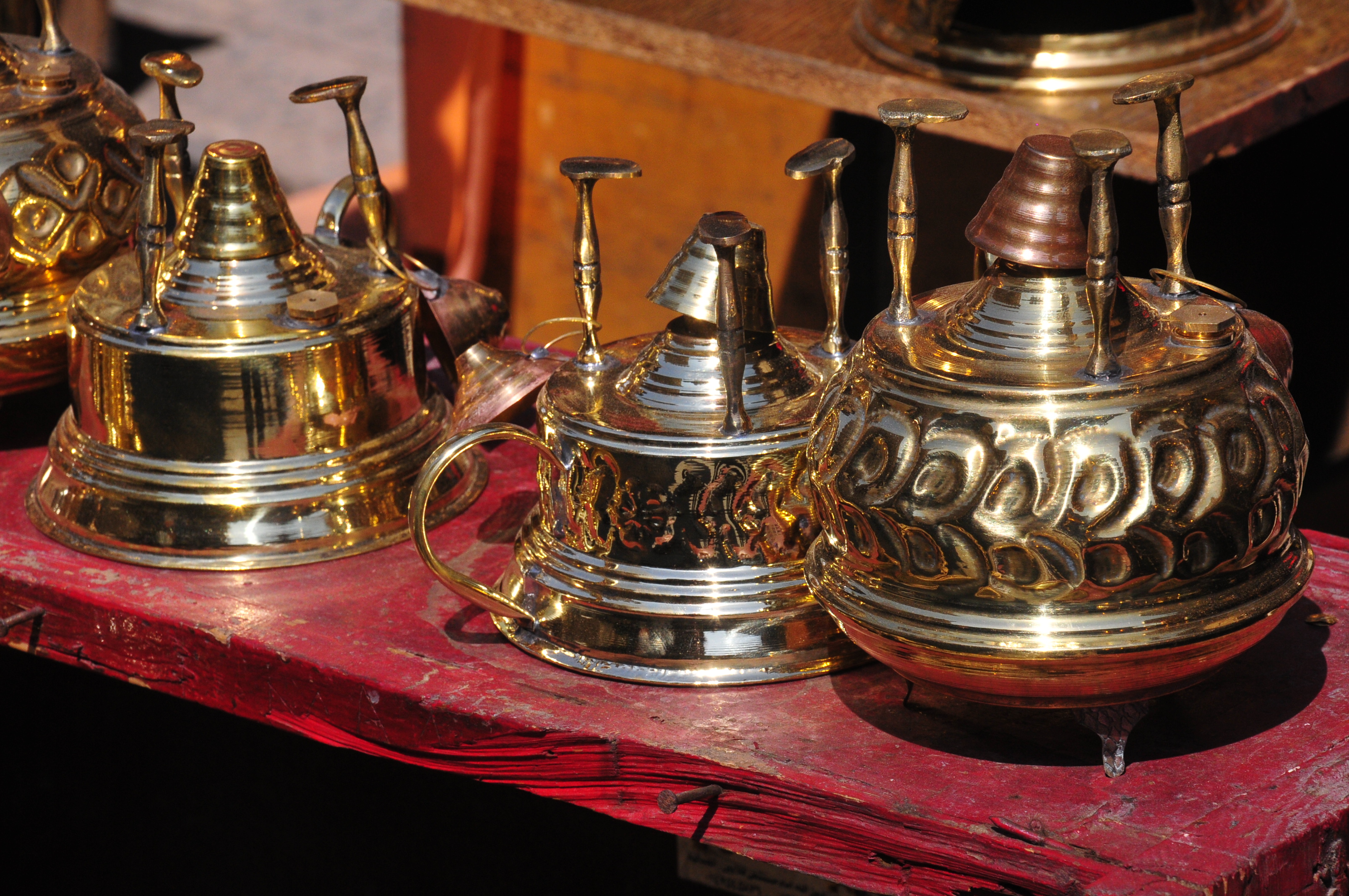 Huddled together in little stalls, reflecting glints of sunshine, copper products can be found all over Khan El-Khalili. They come in all shapes and sizes and vary from useful tools to intricate ornaments to beautify your home. Besides the shops that are scattered across the touristic souq, the copper merchants have their own district within the maze of the Khan. The reddish or golden sheen of the carefully crafted merchandise is the first thing to catch the eye, but closer inspection reveals the intricate decorations that are carefully etched into the metal.
Huddled together in little stalls, reflecting glints of sunshine, copper products can be found all over Khan El-Khalili. They come in all shapes and sizes and vary from useful tools to intricate ornaments to beautify your home. Besides the shops that are scattered across the touristic souq, the copper merchants have their own district within the maze of the Khan. The reddish or golden sheen of the carefully crafted merchandise is the first thing to catch the eye, but closer inspection reveals the intricate decorations that are carefully etched into the metal.
“Some of the inscriptions are hand-crafted, while others are just digitally-scripted upon,” Bolbol, a copper artisan and salesperson at Khan El-Khalili told the Daily News Egypt. Refusing give an accurate account of the time it takes to craft a copper product, Bolbol insisted that it is case-specific. “It depends on the type of product as well as my mood while crafting it. If I am in a good mood, it would definitely take more time as I try to make the decorations as close to perfection as I can.”
The copper business has a long history in Egypt. At the time when plastic and stainless steel were unheard of, almost everything in houses was made of copper. From the frames of beds, to coffee tables, kitchen utensils, lamps, and even incense-holders, copper was the predominant metal to be found in almost all Egyptian households.
Unfortunately it has become rare to find the calm shimmer which copper used to bestow on Egyptian homes of old, as new, easier-to-clean and possibly less-expensive alternatives have taken over the market. The only copper products still produced these days are ornaments which end up decorating more tourists’ homes than Egyptian ones.
Large, round trays with beautiful designs that turn into low tables when positioned on wooden stands compete with small oil burners complete with small pans with long handles to make the traditional ahwa in the crowded stalls. Oil lamps that look like they escaped from Ali Baba’s cave, incense burners and carafes with matching cups and gleaming bases of shishas, the variety on offer is dazzling.
“The tourist activity is close to nil since the January uprising,” said Bolbol, a staunch opponent to the uprising which shook up the Middle East and the world, commenting on the market for copper products. “But the buying and selling is slowly moving forward again.”
Maybe it is time for us to retrace our steps a little and embrace the habits of yesteryear. Drinking tea from little embellished copper cups for instance, feels ten times more authentic than sipping from a regular china mug. It is a shame that the traditions like preparing Turkish coffee at the table on a burner and pouring it out in individual copper cups is slowly disappearing, because the craftsmanship of Egypt’s copper artisans will disappear right along with it.




